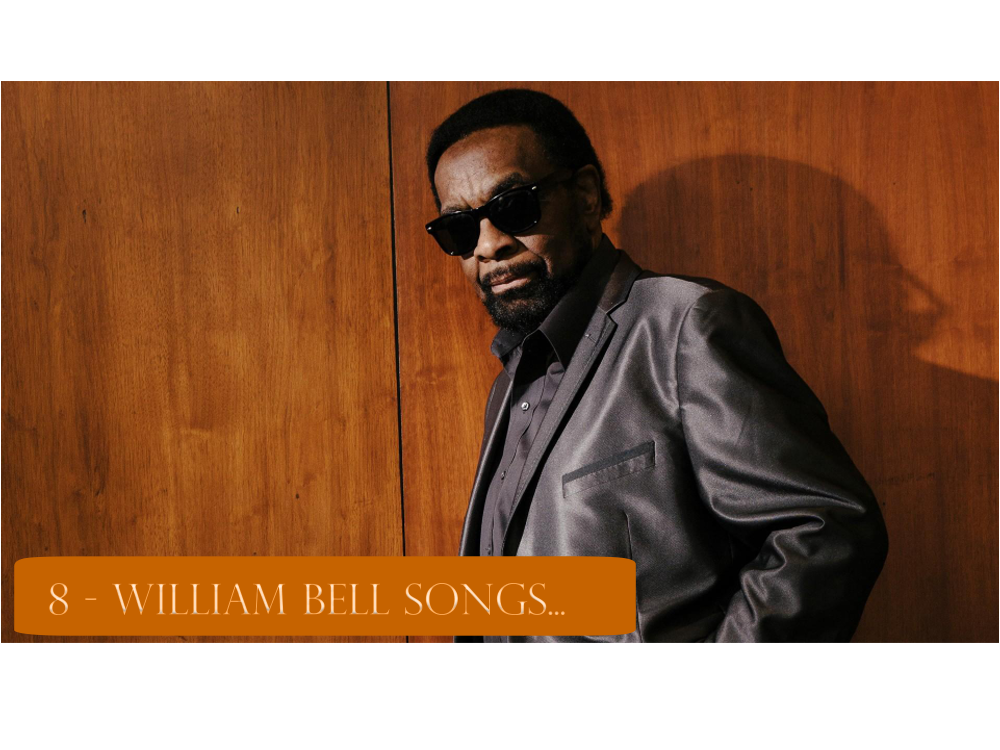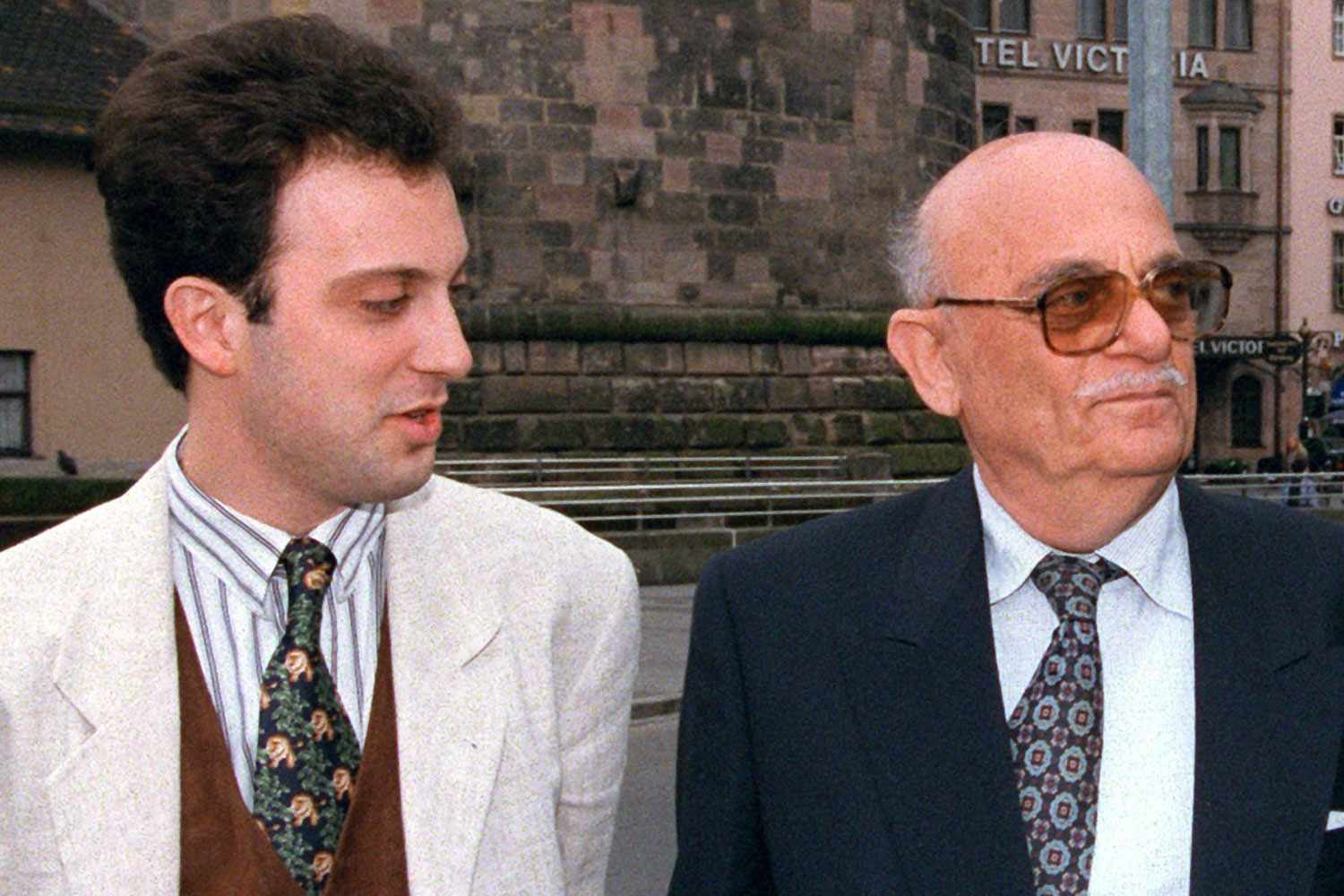
The Timeless Legacy of William Bell
When discussing the golden age of soul music, names like Otis Redding, Sam Cooke, and Wilson Pickett often come to mind. However, among these legends is William Bell—a deep soul craftsman whose work with Stax Records has stood the test of time. With a voice that carries the weight of heartbreak and the wisdom of lived experience, Bell’s catalog remains one of the most underrated in Southern soul history. His songs feel timeless—intimate yet grand, melancholy yet empowering.
Here are eight William Bell songs that not only defined his career but continue to resonate with soul lovers across generations.
1. “You Don’t Miss Your Water”
“You Don’t Miss Your Water” is more than just a soul standard—it’s the soul prototype. William Bell was only in his early 20s when he wrote and recorded this track, yet the emotional maturity on display suggests an old soul reflecting on deep regret. Released on Stax Records, the song would become one of the label’s first breakout singles, establishing Bell not only as a foundational figure in Southern soul but also as a songwriter capable of shaping the emotional blueprint of the genre.
The beauty of the song lies in its simplicity. The lyrics tap into a universal theme of underappreciation and hindsight. That old idiom—“you don’t miss your water till your well runs dry”—might sound cliché today, but Bell turned it into a gospel of emotional accountability. His vocal performance is rooted in the church, delivered with a restrained conviction that never veers into melodrama. You hear heartbreak in every breath, but also a strange calm, as though the narrator has accepted the painful truth.
Instrumentally, the track is understated. The organ swells gently in the background like a choir of ghosts, while the rhythm section moves at a solemn, almost funereal pace. This sparse arrangement gives Bell’s voice the room it needs to resonate fully. The song doesn’t need bells or whistles—its impact comes from how deeply it makes you feel with so little. In many ways, it was a spiritual ballad for the secular world.
In 2025, this song still feels incredibly fresh. It speaks to the moments we take people for granted—lovers, friends, even family—until they’re gone. And in an era where silence often replaces closure, “You Don’t Miss Your Water” offers something rare: a full emotional reckoning, wrapped in melody and meaning. No wonder artists from Peter Tosh to Brian Eno have paid homage to it. It’s soul music at its most elemental.
2. “I Forgot to Be Your Lover”
By 1968, William Bell was a seasoned voice at Stax, and “I Forgot to Be Your Lover” stands as one of his most nuanced and emotionally intelligent tracks. The song begins with soft guitar plucks and swelling strings that set the stage for an intimate confession. But this isn’t just a song about saying sorry—it’s about awakening. Bell sings like a man who’s realizing, too late, that love isn’t just about presence—it’s about participation.
His vocal tone is tender, almost conversational, which makes the words land even harder. When Bell croons, “Oh, I forgot to be your lover / And I’m sorry, I’m so sorry” it doesn’t feel like a generic apology—it feels like a soul-deep recognition of failure. That kind of emotional vulnerability was uncommon in male singers at the time. Instead of leaning on bravado or begging for forgiveness, Bell takes accountability, turning remorse into something artful and deeply moving.
The orchestration is lush but never overwhelming, layering strings and horns delicately around Bell’s vocals. This careful production lets the emotional weight of the lyrics remain front and center. The rhythm is unhurried, echoing the reflective nature of the song—it feels like someone writing a letter they’ve rewritten in their head a hundred times. Even the backing vocals sound like echoes of memory, gently haunting the song’s edges.
“I Forgot to Be Your Lover” has been rediscovered by each new generation, including a standout cover by Billy Idol and a thoughtful sample in Ludacris’s “Growing Pains.” In today’s culture of fleeting texts and disappearing messages, the song is a reminder of emotional depth—a plea to slow down and show love while you still can. In every sense, it’s a blueprint for how to be vulnerable with dignity.
3. “Private Number” (with Judy Clay)
Duets in soul music often flirt with either explosive chemistry or saccharine sentimentality. “Private Number” avoids both extremes by hitting a rare middle note—emotional realism. The track pairs William Bell with the remarkable Judy Clay, and together, they deliver a tale of reconnection that feels as authentic as it is engaging. Structured as a phone call between two estranged lovers, the song plays out like a slice of audio cinema.
The lyrics create an immediate setting: Clay’s character reaches out, wondering if it’s too late. Bell’s response is gentle and receptive, but filled with cautious optimism. There’s a narrative being told here, and it unfolds naturally in their voices. Unlike many male-female duets of the era, there’s no grandstanding—just two people navigating vulnerability. Judy Clay’s voice, full of clarity and strength, contrasts beautifully with Bell’s soft warmth, creating a call-and-response that feels more like a diary entry than a performance.
The arrangement is another unsung hero. The bassline rolls gently like the dial tone of an old rotary phone, while strings rise and fall in the background like emotions swelling behind each line. There’s a cinematic quality to the production that predates what would become common in 1970s soul. “Private Number” could easily be staged as a short film—it’s that visual and emotionally engaging.
Decades later, the song still resonates, not just as a nostalgic throwback, but as a timely reflection on communication. In a world dominated by ghosting and digital blocklists, “Private Number” serves as a beautiful reminder of what it means to reach out—to try, to hope, and to heal. It’s the sound of two souls reconnecting, and in its sincerity, it remains one of the most emotionally resonant duets in the soul canon.
4. “A Tribute to a King”
The death of Otis Redding in a 1967 plane crash sent shockwaves through the music world, especially at Stax Records where Redding was not only a flagship artist but a brother to many. William Bell, ever the soul poet, responded with “A Tribute to a King,” one of the most heartfelt memorials in music history. This wasn’t just a tribute—it was a spiritual dirge, a public mourning rendered in 3 minutes and 8 seconds of sheer vulnerability.
From the first line, “Listen, people, listen / I’m gonna sing you a song / About a man who lived good / But didn’t live too long” Bell sets a tone of personal grief. He doesn’t mythologize Otis; he remembers him. He speaks not only as a colleague but as a friend, a witness to the artist and the man. There’s a quiet nobility in the song’s tone, which never veers into melodrama. Bell understood that the most powerful tributes are the ones that humanize rather than idolize.
The musical arrangement mirrors that sentiment. The horns are subdued, almost like they’re sobbing. The rhythm is slow and processional, like a New Orleans funeral march. And Bell’s voice? It cracks in places—not in pitch, but in spirit. That slight quiver in his delivery carries more emotional truth than a thousand soaring high notes ever could. It’s not just about how Otis died—it’s about how deeply he was loved and how much he is missed.
In 2025, “A Tribute to a King” still hits hard. It speaks to the grief that follows sudden loss, and it offers solace through song. As the music world continues to lose icons each year, Bell’s tribute reminds us that legacy is measured not just in awards or hits, but in the emotional footprints artists leave behind. This song remains one of the most powerful love letters one artist has ever written to another—and it still brings a lump to the throat.
5. “Born Under a Bad Sign”
Though most commonly associated with Albert King’s explosive 1967 rendition and later Cream’s blues-rock adaptation, “Born Under a Bad Sign” is William Bell’s lyrical brainchild. Co-written with the legendary Booker T. Jones, the song’s title alone is steeped in myth and fatalism. It evokes not just astrological gloom, but the universal feeling of being dealt a bad hand in life—a narrative that continues to speak to countless listeners facing hardship.
Bell’s own interpretation of the song arrived in 1969 and presents a markedly different perspective than King’s guitar-driven swagger. Instead of leaning into power chords and bravado, Bell taps into the existential sadness beneath the lyrics. His vocals are raw but measured, exploring the internal weight of misfortune rather than externalizing it as rage. He doesn’t yell—he reflects, drawing the listener into the quiet desperation behind the words.
The instrumentation in Bell’s version is more subdued, with a gentle rhythm section and organ lines that evoke a slow burn rather than a blaze. The lack of flash works to his advantage, spotlighting his delivery and the poetic heft of lines like “If it wasn’t for bad luck, I wouldn’t have no luck at all.” The song becomes less about blues as genre and more about blues as lived reality—a daily reckoning with fate, injustice, and personal shortcomings.
In today’s world, where economic instability, societal inequality, and mental health struggles are ever-present, “Born Under a Bad Sign” feels just as urgent. Bell’s take strips the song down to its core truth: life isn’t always fair, but the burden is easier to carry when you’ve got music that articulates the weight of it. For anyone who’s ever felt like the universe had it out for them, this track is a soul-deep comfort.
6. “Easy Comin’ Out (Hard Goin’ In)”
By 1977, William Bell had weathered the seismic shifts of the music industry—from the heyday of Memphis soul to the glitzy rise of disco. While many artists were chasing chart trends, Bell stayed rooted in narrative-driven songwriting, and “Easy Comin’ Out (Hard Goin’ In)” is a prime example of that resolve. On the surface, it’s a love song about the bittersweet end of a relationship. But dig deeper, and you’ll find a philosophical commentary on the emotional costs of intimacy.
The track begins with a mellow yet tight rhythm, instantly signaling a shift from Bell’s earlier gospel-tinged ballads to a funkier, groove-based sound. Still, the production—full of layered horns, shimmering strings, and syncopated percussion—never overshadows Bell’s voice. His delivery has evolved by this point; it’s more controlled, more textured, shaped by years of both personal and professional highs and lows.
Lyrically, the song is masterful in its use of contrast. The title itself captures the whole idea: it’s easy to fall in love, easy to say the right things at the beginning—but the end? That’s where the real work lies. Bell doesn’t romanticize heartbreak. Instead, he paints it as the inevitable fallout of choices and complacency. Lines like “You came like a whisper, left like a storm” offer poetry without pretense.
“Easy Comin’ Out (Hard Goin’ In)” resonates in 2025 for its realism. At a time when love is often trivialized through swipe culture and transactional dating, Bell’s song serves as a poignant reminder: emotional exits are rarely clean, and the deeper the love, the messier the unraveling. It’s grown-folk soul at its finest—honest, wise, and painfully beautiful.








